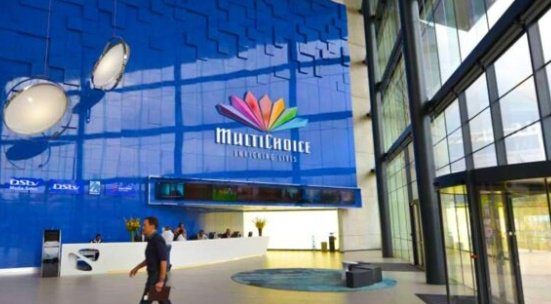MultiChoice, the continent’s largest pay-television operator, continues to confront a turbulent period marked by declining subscriber numbers and profitability. The company, which owns and operates DStv, has seen its active subscriber base shrink significantly—from over 23 million to 19.3 million—within the space of less than two years. This contraction reflects a combination of economic stressors, changing consumer preferences, and rising operational expenses.
Households across Africa, feeling the brunt of ongoing economic strain, are cutting back on discretionary spending. Entertainment services are among the first casualties as families reprioritise their budgets in response to inflation and higher living costs. A notable shift in how people consume content has also emerged. An increasing number of users are migrating toward digital platforms, social media, and gaming, further compounding the challenges facing traditional broadcasters like MultiChoice.
While the company has managed to restore a positive equity position, it remains cautious. In its recent interim update, MultiChoice revealed that broader economic difficulties—exacerbated by inflationary pressures and high interest rates in multiple regions—are expected to weigh heavily on its performance through the financial year ending March 2025.
At the mid-point of its financial year, the company reported a dramatic drop in headline earnings, falling from R1.5 billion to a mere R7 million. A significant contributor to this downturn has been foreign exchange volatility, which has impacted MultiChoice’s financial results across the 50 markets in which it operates. The devaluation of currencies in key territories has inflated operating costs and further eroded the group’s margins.
The reduction in customer numbers has also been particularly pronounced in the premium segment of the South African market, where approximately 400,000 subscribers have opted out. This decline highlights a broader trend in which consumers are moving away from high-cost entertainment options amid tighter financial conditions.
Despite the fall in profits, MultiChoice recorded a 4% increase in revenue on an organic basis, reaching R25.4 billion. This growth was largely fuelled by pricing adjustments and new product offerings. However, when accounting for currency fluctuations and the appreciation of the South African rand, reported revenue declined by 10%.
The company noted that the operational environment remains unstable, and that it is placing an emphasis on preserving capital.
“The cost-of-living crisis, combined with high inflation and interest rates in many regions, continues to impact its performance.”
This concern is echoed in the group’s strategic positioning as it recalibrates its business to adapt to an evolving media landscape.
MultiChoice has also sounded a note of caution regarding returns for investors in its Phuthuma Nathi scheme. The empowerment vehicle, which holds a 25% stake in MultiChoice South Africa, has long served as a flagship example of broad-based black economic empowerment in the country. However, in light of the company’s strained performance, dividend payouts to these shareholders are expected to be substantially lower this year.
This development is likely to be met with disappointment by many retail investors who rely on the scheme for regular returns, particularly during a time when broader economic hardship is being felt across the board.
As MultiChoice wrestles with these internal and external pressures, a proposed takeover bid by French media group Canal+ hangs in the balance. The European broadcaster, which already owns more than one-third of MultiChoice, has tabled an offer to acquire the remaining shares at R125 per share. If successful, the deal would give Canal+ full control of the South African pay-TV operator.
However, the acquisition process has encountered regulatory obstacles. Originally intended to be finalised earlier, the deal is now projected to conclude only by October, pending clearance from relevant authorities.
“Dividends for Phuthuma Nathi shareholders… are likely to be much lower this year.”
The potential implications of the Canal+ acquisition are far-reaching. While the injection of international capital and expertise could bolster MultiChoice’s ability to compete in an increasingly global content market, concerns around foreign ownership and the safeguarding of local content remain points of discussion.
At the heart of MultiChoice’s challenge is the shifting nature of media consumption. Viewers now expect more flexible, personalised, and on-demand experiences. The company, once unrivalled in the African pay-TV landscape, must now contend with international streaming giants, agile tech-driven platforms, and rapidly evolving user behaviour.
“Subscriber numbers, measured on a 90-day active basis, fell by 11% to 19.3 million.”

















